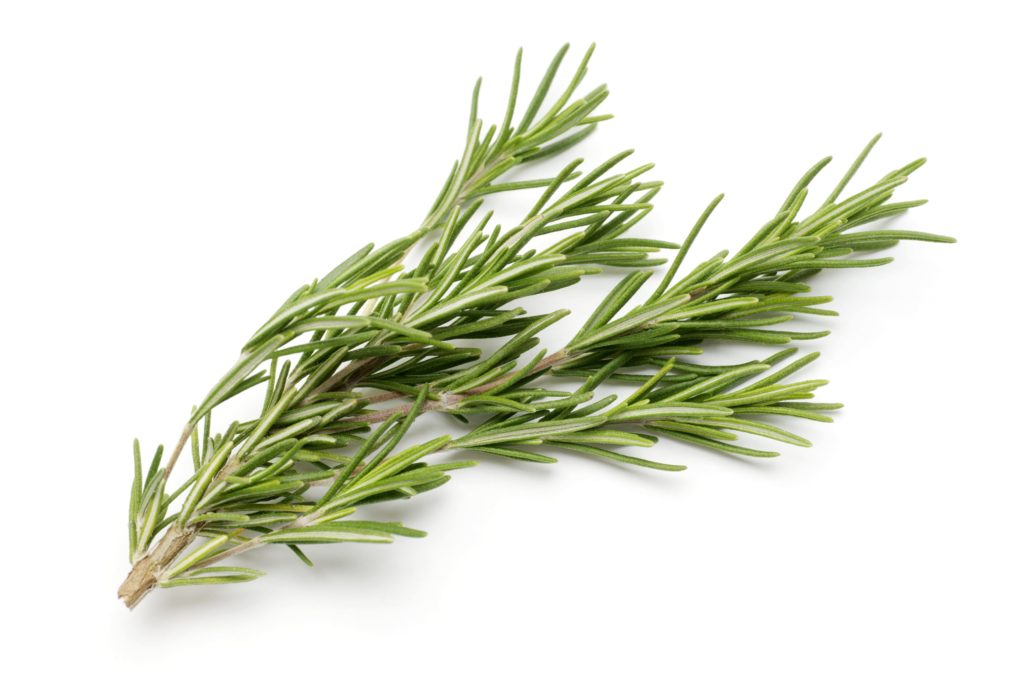Rosemary
Aromatic, rustic, and charming rosemary is a hearty evergreen herb that grows well in porous terrain and warm, sunny conditions. The tops of its tall stalks bloom with purple flowers while its needles contain the majority of its signature lemony-pine fragrance and oil.
Rosemary is often used in food and drink recipes (especially Mediterranean-style dishes), aromatherapy, soaps, lotions, and other topical applications.
In lab tests, rosemary has been shown to kill several types of bacteria, fungi, and pathogens. Combine that with its unique and calming fragrance and you’ve got an ideal choice to be added to soaps, shampoos, lotions, and room sprays. Its ability to stimulate hair growth and ease aches and pains with the aromatic properties in its oil make it a great herb to keep on hand.


Benefits
- Improves memory and concentration
- Combats food-borne pathogens such as Listeria
- Contains antimicrobial properties, killing certain bacteria in lab tests
- Contains antioxidant properties which help to eliminate free radicals that kill healthy cells
- Often used to treat alopecia: Oil is massaged into the scalp to help stimulate hair growth
- Alleviates muscle and joint spasm
- Provides pain relief
- Eases indigestion
- Relieves stress
Tips for Using Rosemary
Add a fresh sprig to chicken when baking, to your tea or hot water, or even use in more rustic baked goods like loaf bread and pound cake. Tie several sprigs in a bundle and hang from your showerhead for a soothing aromatherapy effect, or add some to olive oil to infuse with its flavor and properties. When using a dried form, you’ll need to use more than you would if it were fresh to obtain the same strength of flavor.

